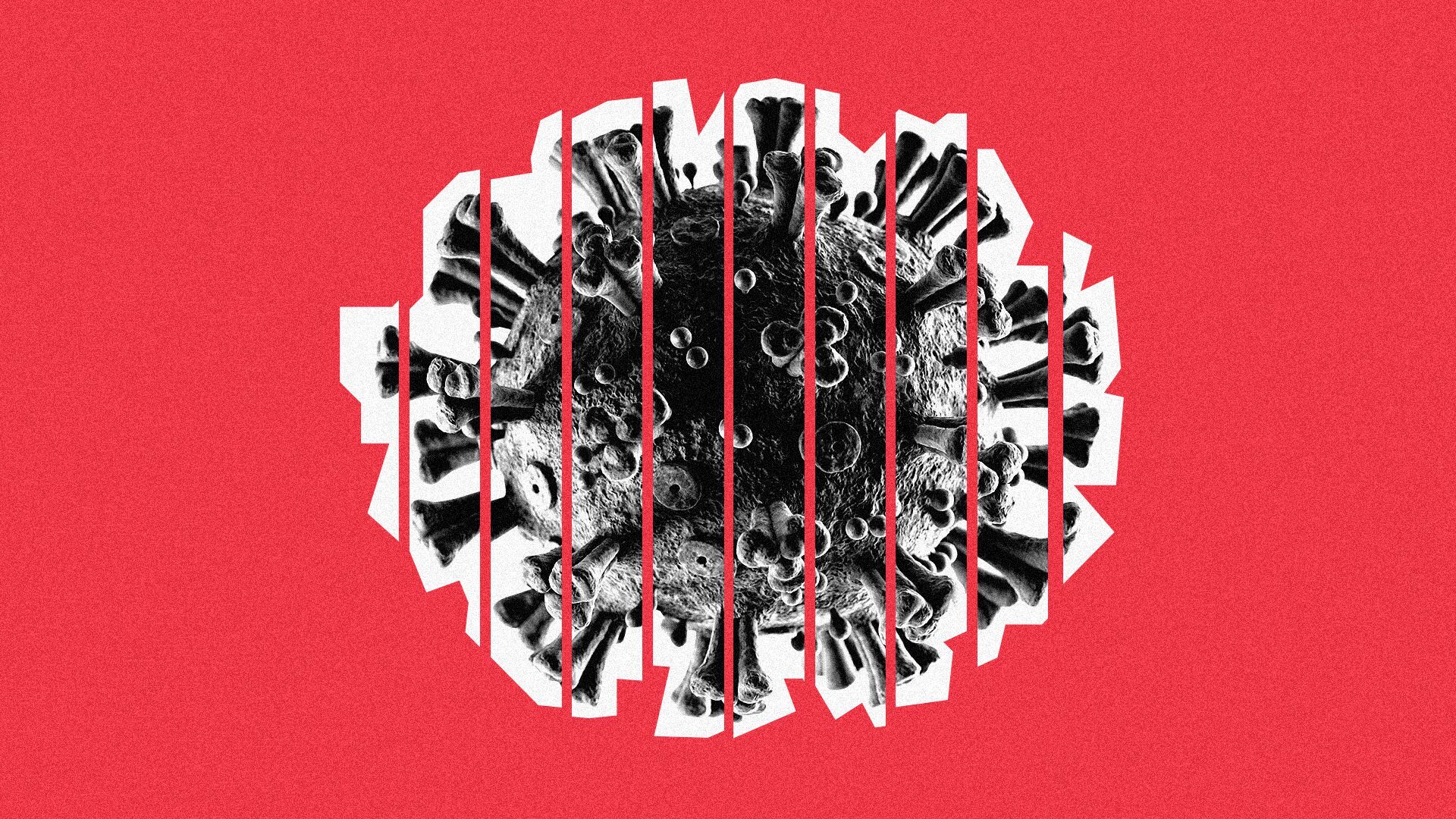| | | | | | | Presented By Coalition Against Surprise Medical Billing | | | | Vitals | | By Caitlin Owens ·Dec 10, 2020 | | Good morning. Today's word count is 1,116, or a 4-minute read. | | | | | | 1 big thing: The U.S. is an outlier on health disparities |  Data: Doty, et al., 2020, "Income-Related Inequality In Affordability And Access To Primary Care In Eleven High Income Countries"; Table: Andrew Witherspoon/Axios Socioeconomic disparities in health care are significantly worse in the U.S. than in other wealthy countries, according to a new study by the Commonwealth Fund, published in Health Affairs. Why it matters: Wealthy Americans have long had better access to care — and therefore better outcomes — than poor Americans. And the coronavirus' disproportionate impact on low-income Americans and people of color has made those disparities glaringly obvious. What they found: "Adults with lower incomes in the U.S. were far more likely than those in the other high-income nations ... to go without needed health care because of costs, to face medical bill burdens, and to struggle to afford basic necessities such as housing and healthy food," the study's authors write. - Low-income adults are more likely to have multiple chronic conditions in the U.S. than in the 10 other high-income countries. During the pandemic, these underlying conditions have translated into a higher risk of serious coronavirus infections.
- On every measure of health status, as well as affordability and access to primary care, the U.S. reported some of the largest income disparities.
Yes, but: Higher-income Americans were also more likely to forgo health care because of the cost than their affluent peers in most other countries. Between the lines: The U.S. was the only country studied that doesn't have universal health coverage along with some form of cost protections. - The U.S. also underinvests in primary care, whereas most of the other countries in the study have national policies that support strong primary care.
- We also invest less in social determinants of health and social services.
The bottom line: These disparities have real-world implications every day. But they've been vividly on display over the last nine months, as vulnerable populations have consistently been more likely to be infected by the virus and, ultimately, to die from it. |     | | | | | | 2. Coronavirus cases still spiking in Middle America |  Data: The COVID Tracking Project, Census Bureau; Map: Andrew Witherspoon/Axios The Midwest and Great Plains regions, parts of which have already struggled with overwhelmed hospitals, continue to lead the U.S. with the densest concentration of coronavirus cases, Axios' Sam Baker and Andrew Witherspoon report. The big picture: With winter approaching — and widespread vaccination still several months away — the virus is spreading with dangerous ease. By the numbers: Over the past week, Indiana, Rhode Island, South Dakota and Utah racked up an average of at least 100 new cases per day for every 100,000 residents. - Another 16 states saw 75–100 new cases per capita per day.
- Heavily rural states have less hospital capacity to care for all those people and will face bigger challenges from vaccines that require ultra-cold storage.
How it works: Every week for several months, Axios has been tracking the change in daily infections in each state. - This week, though, we're looking at the total number of cases per capita, instead of the change in the number of cases.
- The Thanksgiving holiday caused some issues with states' reporting. Everything seems to be back on track now, but we don't want to rely on earlier data that may not paint an accurate picture of the pandemic.
The bottom line: This is simply too much coronavirus. - Too many new infections are sending too many seriously ill patients into hospitals. Almost 105,000 people are hospitalized for coronavirus infections right now.
- These infections also are leading to too many deaths — nearly 13,000 in just the past week.
|     | | | | | | 3. Wealthy and connected get antibody treatments | | President Trump and his friends have received coronavirus antibody treatments that are so scarce that some states and hospitals are giving them out via a lottery system, the New York Times reports. Why it matters: Putting aside questions of medical ethics, these high-profile examples of successful coronavirus recoveries could give the impression that the virus is much less dangerous than it is — particularly because most patients won't have access to the same game-changing treatment that these politicians did. - Recipients, in addition to Trump himself, include Ben Carson, Chris Christie and Rudy Giuliani.
What they're saying: "If it wasn't me, I wouldn't have been put in a hospital frankly," Giuliani told WABC radio. "Sometimes when you're a celebrity, they're worried if something happens to you they're going to examine it more carefully, and do everything right." - "Mr. Giuliani's candid admission once again exposes that Covid-19 has become a disease of the haves and the have-nots," NYT writes.
The big picture: The antibody therapies, developed by Eli Lilly and Regeneron, received authorization from the Food and Drug Administration last month to be used by high-risk patients with "mild to moderate" disease. - That means a lot of patients who are diagnosed with the virus could qualify.
- Health and Human Services Secretary Alex Azar said yesterday that 278,000 doses of the two therapies have been allocated. 210,000 coronavirus cases were reported just yesterday.
|     | | | | | | A message from Coalition Against Surprise Medical Billing | | Arbitration puts private equity profits over patients | | |  | | | | There's broad bipartisan support to stop surprise medical billing. But how we do it matters. In Texas, 85% of the arbitration requests in the first six months were from private equity firms, with the cost of arbitration averaging $1,000 per claim. Stop surprise bills with fair, market-based prices. | | | | | | 4. Longer lives, but worse chronic disease |  Adapted from World Health Organization; Chart: Andrew Witherspoon/Axios Almost 75% of the world's deaths last year were from non-communicable diseases like heart disease, diabetes and cancer, according to the World Health Organization. Why it matters: Worldwide life expectancy is now up to an average of 73 years — six years longer than it was in 2000. But chronic, and in some cases preventable, disease is also taking a bigger toll than it was 20 years ago, Axios' Marisa Fernandez writes. By the numbers: Seven of the the globe's 10 leading causes of death in 2019 were from noncommunicable diseases — up from four in 2000. - Heart disease, which has been the world's leading cause of death for the last 20 years, is killing more people than ever before, representing 16% of the world's total deaths last year.
- Deaths from diabetes increased by 70% globally since 2000, with an 80% rise in deaths among men.
- Lower respiratory infections are still the world's most deadly communicable disease, but the number of deaths has gone down by almost half a million lives since 2000.
Yes, but: Many communicable diseases, including HIV/AIDS, tuberculosis and lower respiratory infections, remain leading causes of death in low- and lower-middle income countries. What to watch: COVID-19 will likely make 2020's top 10, WHO officials said, as the global death toll reached the 1.5 million mark on Dec. 3. |     | | | | | | 5. Catch up quick |  | | | Illustration: Aïda Amer/Axios | | | | BioNTech and Pfizer announced Wednesday the European Medicines Agency was targeted by a cyberattack and regulatory documents related to their coronavirus vaccine submission were accessed. Some public health experts have suggested that pro athletes should be among the first to receive the COVID-19 vaccine, believing it could engender confidence in those who are hesitant to get vaccinated, Axios' Jeff Tracy reports. A bipartisan group of lawmakers on Wednesday released a detailed outline of their $908 billion coronavirus stimulus proposal, according to a copy of the draft legislation obtained by Axios. Pennsylvania Gov. Tom Wolf (D), 72, tested positive for COVID-19 on Tuesday, and is experiencing no symptoms as he self-isolates, he tweeted Wednesday. The U.S. Conference of Mayors and Bloomberg Philanthropies announced on Wednesday a partnership to help mayors across the country prepare for the distribution of limited stocks of the coronavirus vaccine. |     | | | | | | A message from Coalition Against Surprise Medical Billing | | Stop surprise medical bills with fair, market-based prices | | |  | | | | Fair, market-based payments for out-of-network services will save taxpayers $25 billion over the next decade. The choice for policy-makers is clear: provide relief for more than 100 million Americans or give a hand-out to private equity firms. Stop surprise bills with fair, market-based prices. | | | | | | Axios thanks our partners for supporting our newsletters.
Sponsorship has no influence on editorial content. Axios, 3100 Clarendon Blvd, Suite 1300, Arlington VA 22201 | | | You received this email because you signed up for newsletters from Axios.
Change your preferences or unsubscribe here. | | | Was this email forwarded to you?
Sign up now to get Axios in your inbox. | | | | Follow Axios on social media:    | | | | | |
Post a Comment
0Comments